See below for a press release from Speaker Eileen Filler-Corn’s office, as well as some video (note: I’ll add more as they upload to YouTube) and screen shots from today’s House of Delegates biennial budget proposal for Fiscal Years 2020-2022. There’s lots of information in here, but in sum, as Speaker Filler-Corn’s press release explains, the budget “gives well deserved pay raises to Virginia’s public school teachers, state employees, sworn State Police officers, and supports a long overdue raise in the minimum wage, and fully funds the Commonwealth’s Housing Trust Fund…while maintaining Virginia’s AAA bond rating and well-earned reputation for fiscal responsibility.” Of course, everyone wants more money for their area(s), but at some point, we will need to raise – wait for it – *taxes* in order to pay for increased spending. And something tells me that there’s not much appetite for doing that…even with progressive taxes like the estate tax or perhaps raising income tax rates on the wealthiest Virginians.
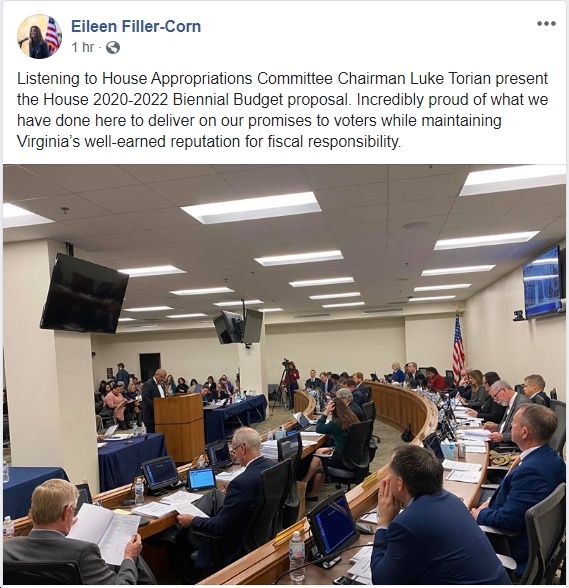
|
|
Here for the @VAHouseDems budget reveal. Included funds to pay for an assumed increase in the minimum wage. I remember being shocked at the fiscal impact statement I received in 2015 when I introduced a $15 min wage bill. pic.twitter.com/MspsGPbdi0
— Marcus Simon (@marcussimon) February 16, 2020
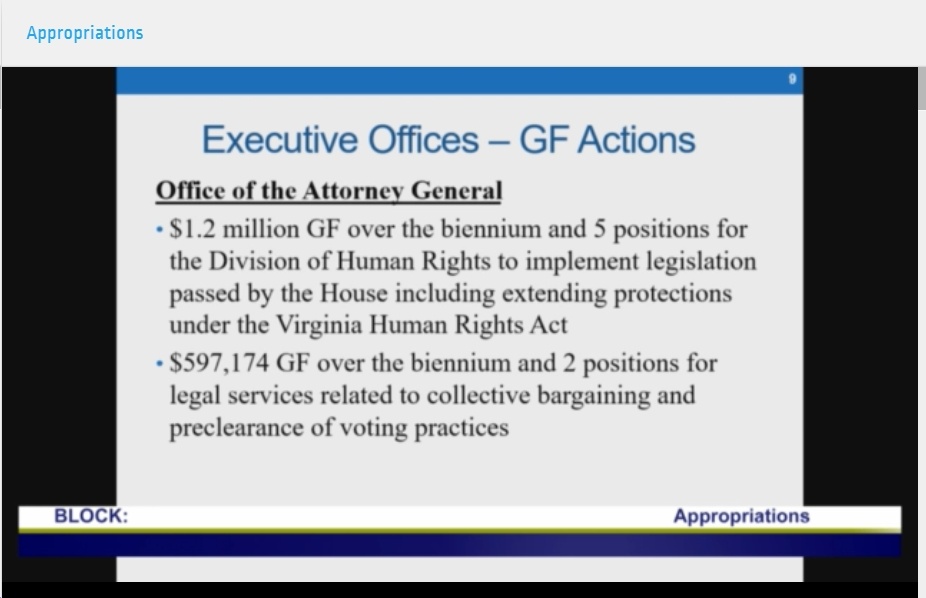
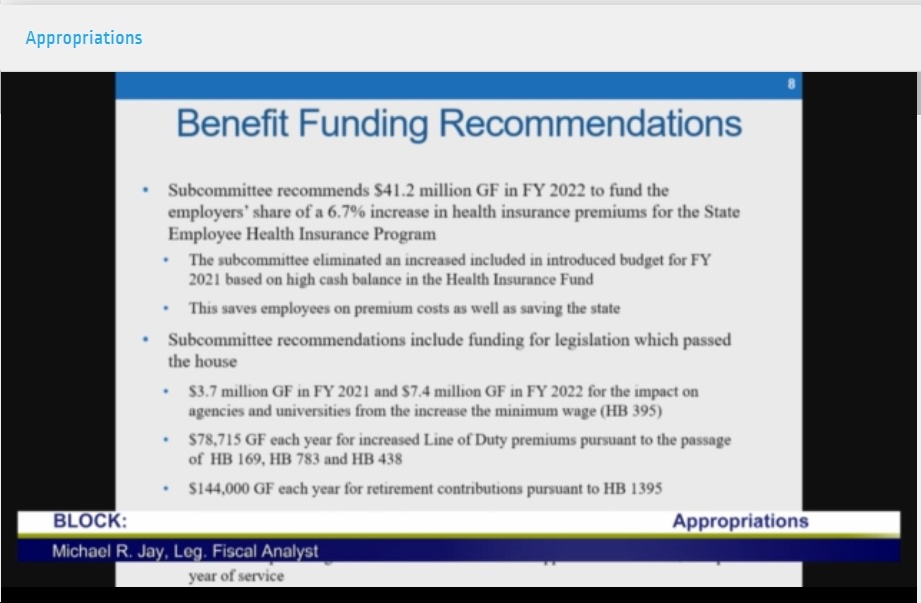
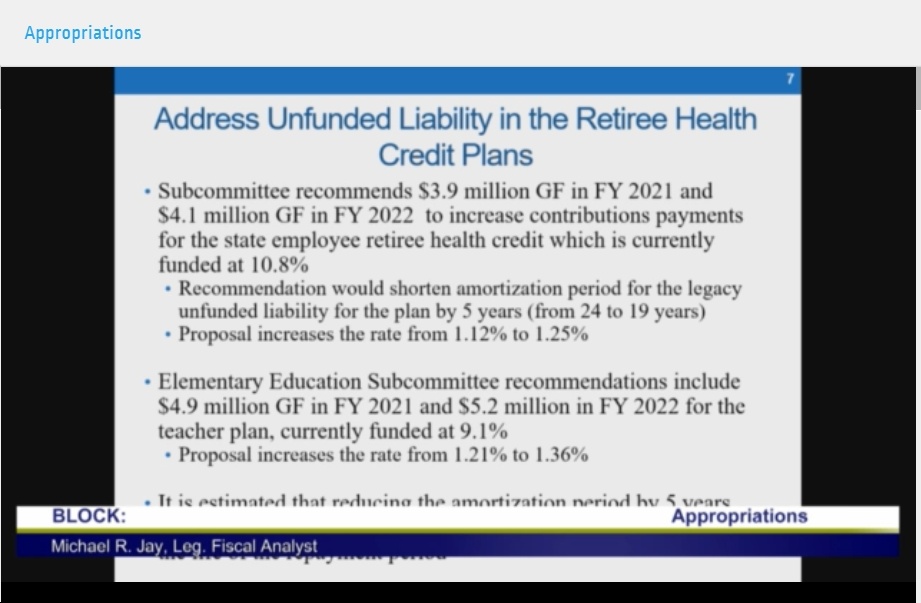
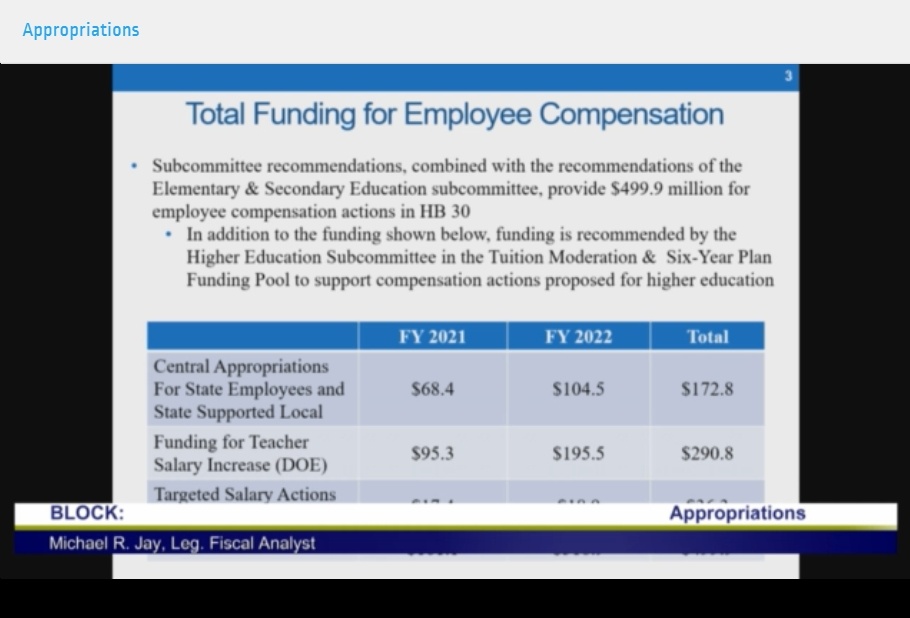
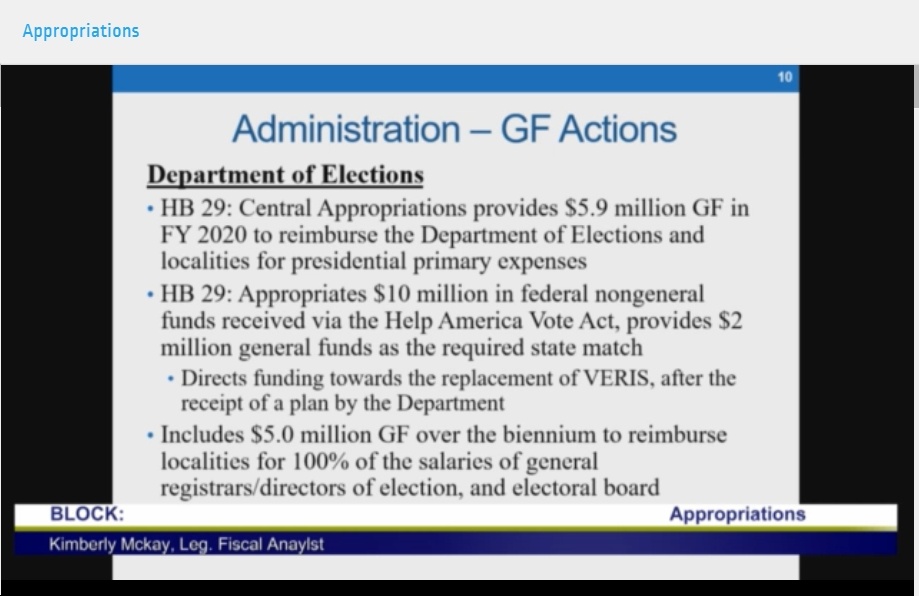
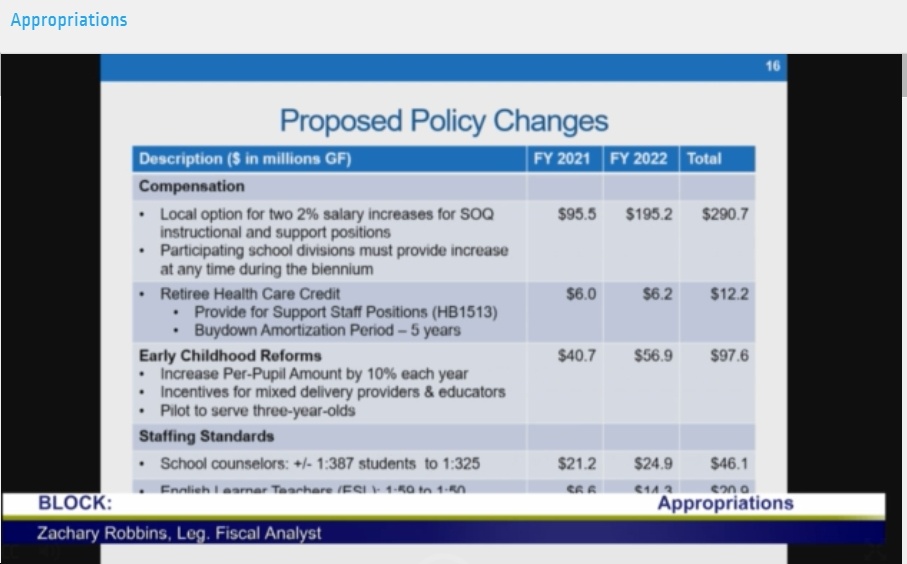
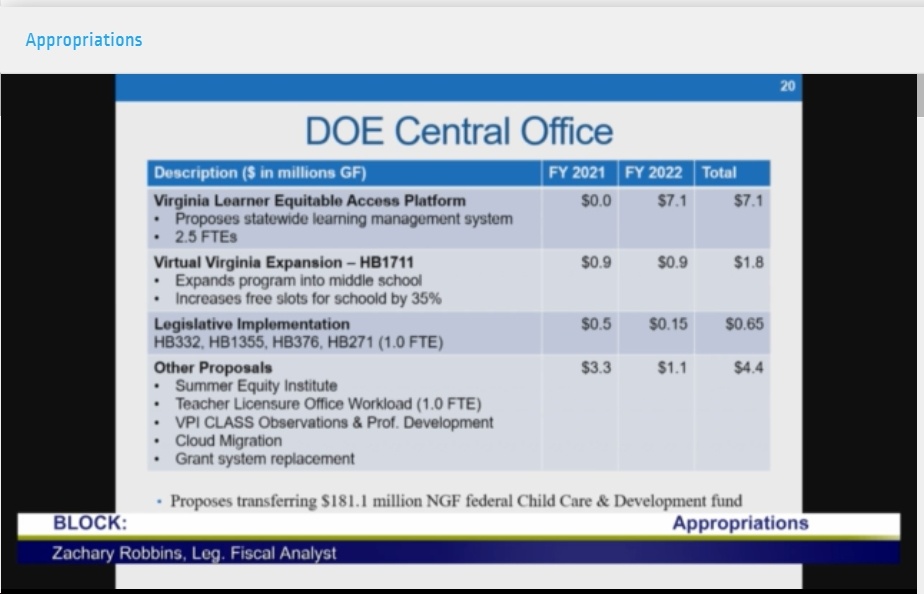
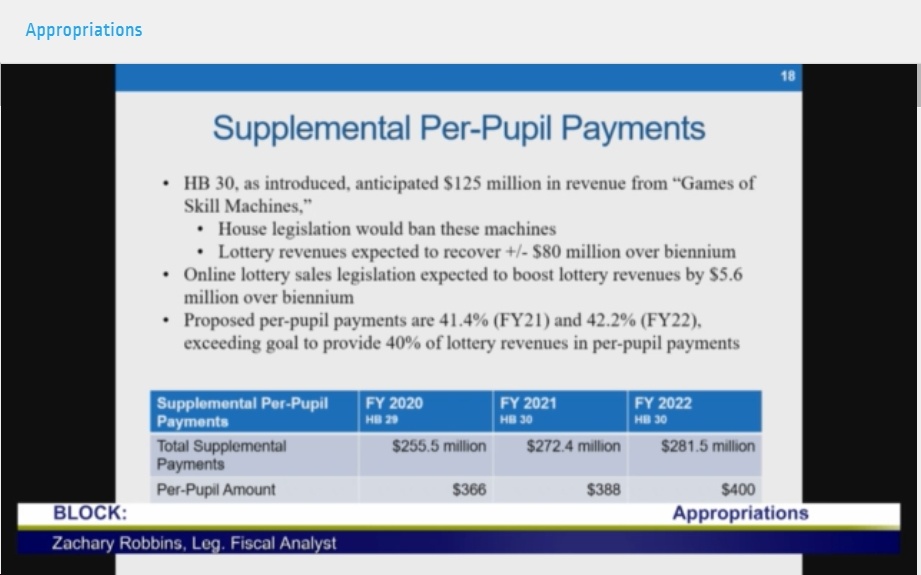
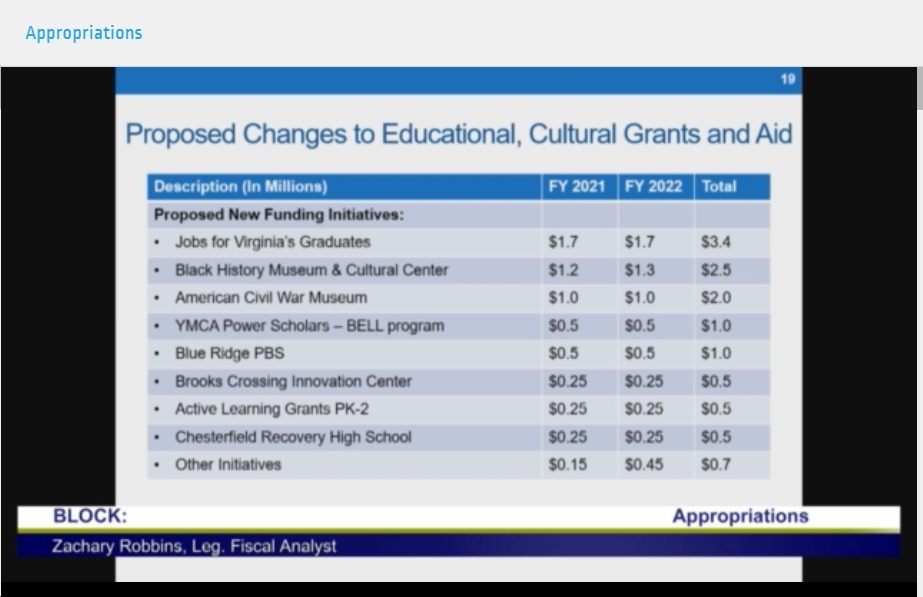
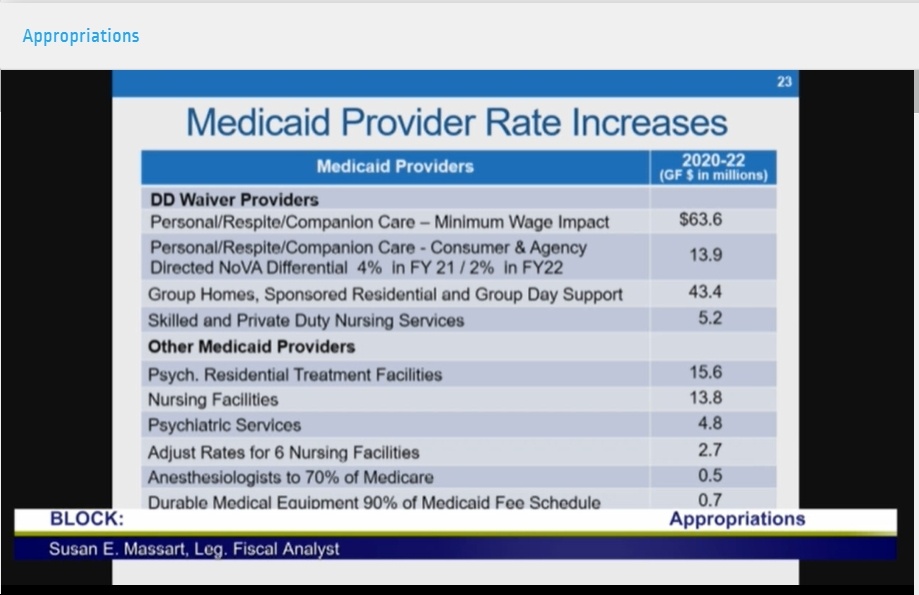
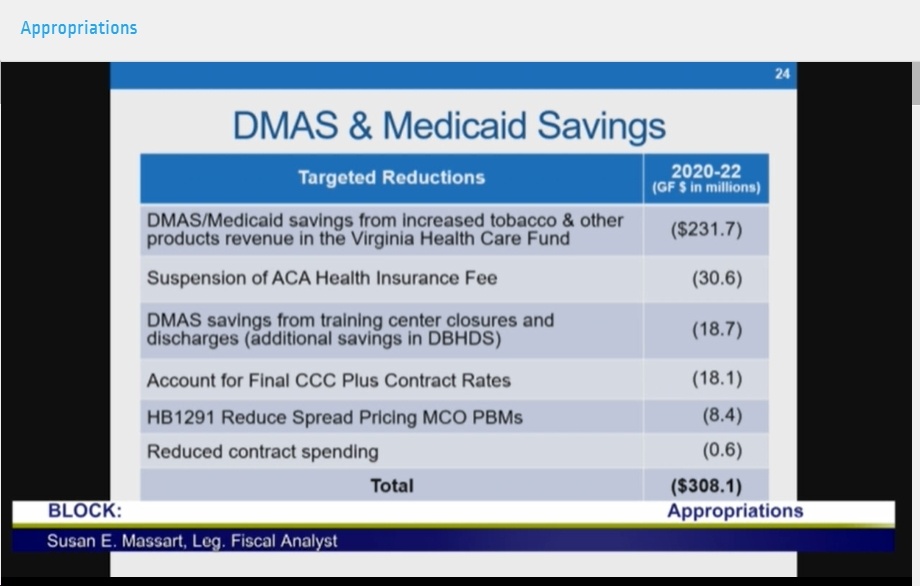
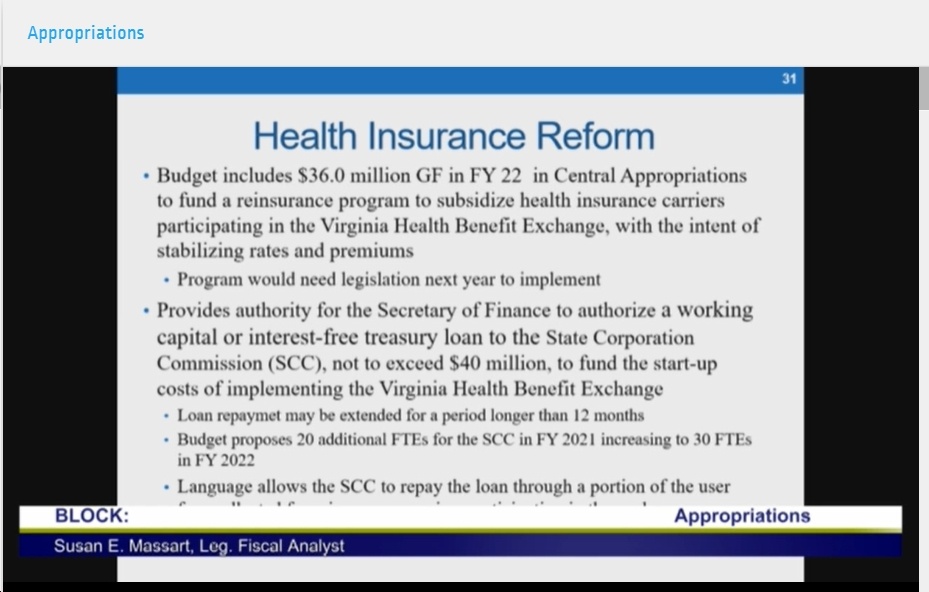
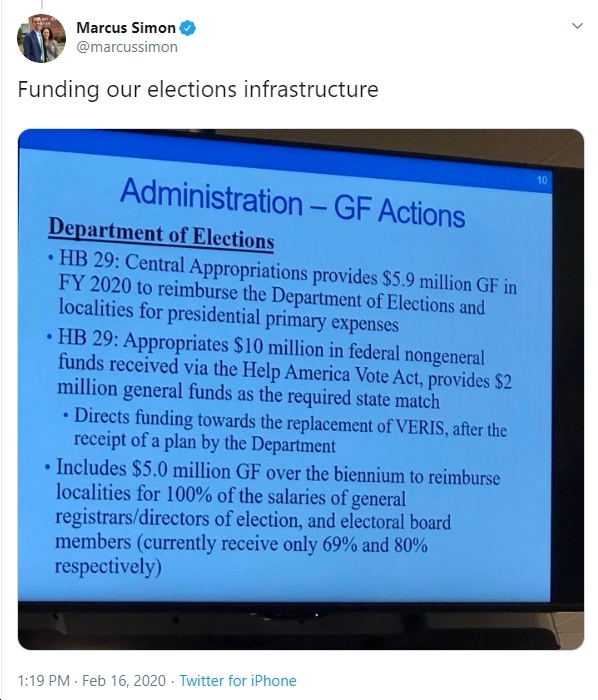
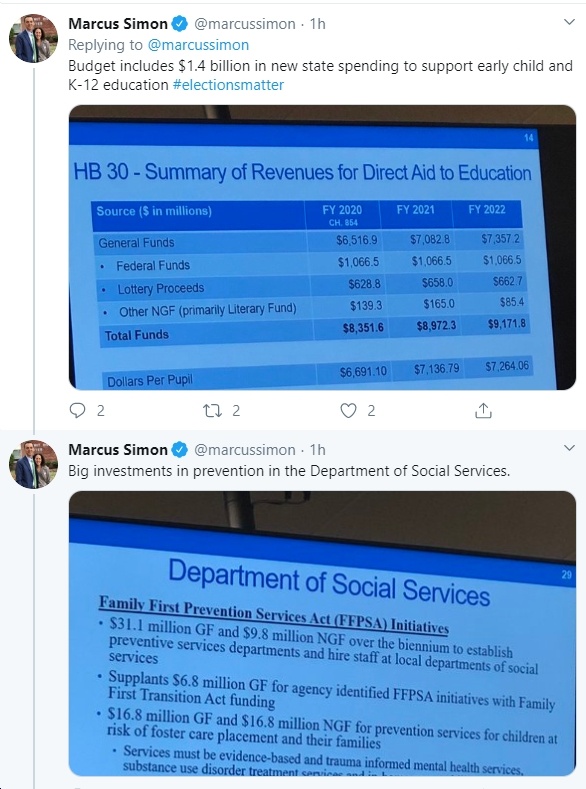
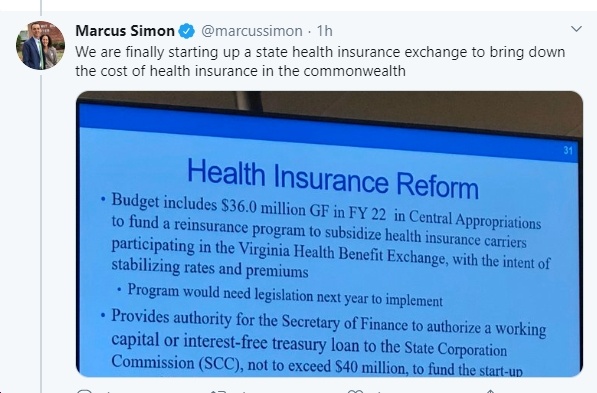
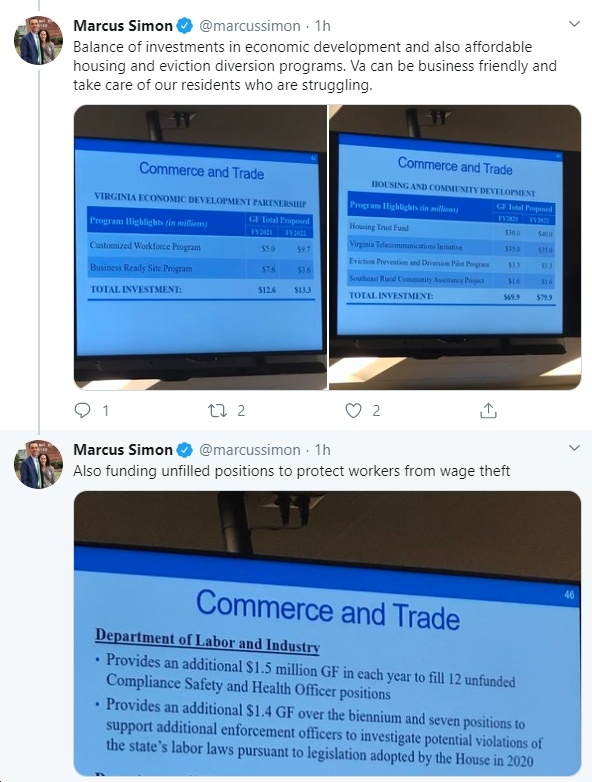
House Appropriations Committee Reports Budget
Committee budget contains key investments in education, health care, workers’ rights
RICHMOND, VA – The House Appropriations Committee reported its biennial budget on Sunday, February 16, at the Pocahontas General Assembly Building in Richmond. The House budget includes significant funding for Virginia’s public education system, affordable health care, and workers’ rights.
The House Appropriations Committee has considered hundreds of proposals with fiscal impact since the 2020 legislative session began. Sunday’s reported budget reflects the biennial spending priorities of the new House majority. The full House of Delegates will vote on the reported budget bill this Thursday.
House Appropriations Chair Luke Torian issued the following statement: “The members and staff of the House Appropriations Committee are proud to report a forward-looking budget that reflects the values and priorities of our Commonwealth. This budget includes key investments in education, affordable health care, and workers’ rights.
The budget includes $21 million towards lowering the teacher-to-English language learner ratio and $46 million to achieve a school counselor-to-student ratio of 1:325 in our K-12 schools. We are proposing significant investments in higher education, including funding increases for Virginia’s Community College System and close to $35 million for our Historically Black Colleges and Universities. We are increasing access to higher education by including in-state tuition for refugees and undocumented immigrants and a Veteran Student Transition Grant Fund. The budget continues the college tuition freeze through 2021.
Addressing the racial disparities in maternal health has been a top priority. Our budget aims to improve maternal health outcomes by directing the Department of Health to adopt regulations governing the certification of doulas and creating a publicly available doula registry, requiring Medicaid Managed Care Organizations to cover midwifery services, and extending Medicaid coverage 12 months postpartum. Building on Virginia’s 2018 Medicaid expansion under the Affordable Care Act, we are establishing a State Health Benefit Exchange to lower insurance costs. We are raising Medicaid provider reimbursement rates to preserve access to critical services such as the Developmental Disability Waiver program, residential supported living, and nursing homes.
For too long Virginia has touted our status as a top state to do business while neglecting the rights and opportunities of those working in the Commonwealth. This session has shown historic progress for labor rights and workplace equity in Virginia. Our budget expands workers’ compensation benefits to include more cancers on the list of presumed occupational diseases, cover post-traumatic stress disorder for law enforcement officers and firefighters, and creates a Workers’ Compensation Ombudsman. We are establishing collective bargaining for public employees, raising the minimum wage, addressing the gender wage gap, and making it easier for undocumented immigrants to work by increasing access to driving privileges. The budget includes a two percent pay raise for all state employees in the second year of the biennium, as well as a 10% bonus and a compression adjustment in the first year that will especially benefit lower-wage workers.
The House Appropriations Committee is reporting a balanced, fiscally responsible budget that will guard Virginia’s AAA bond rating while advancing equity of opportunity across the Commonwealth and helping rather than hindering every Virginian’s ability to thrive.”


![Thursday News: “Europe draws red line on Greenland after a year of trying to pacify Trump”; “ICE Agent Kills Woman, DHS Tells Obvious, Insane Lies About It”; “Trump’s DOJ sued Virginia. Our attorney general surrendered”; “Political domino effect hits Alexandria as Sen. Ebbin [to resign] to join Spanberger administration”](https://bluevirginia.us/wp-content/uploads/2026/01/montage010826-238x178.jpg)







![Video: Fmr. VA Del. Wendy Gooditis (D-Clarke) Announces Her Candidacy for U.S. House; Says “President Trump and Ben Cline [R-VA06] have attacked our health care, our jobs, and our democracy, and they are hurting families across Virginia”](https://bluevirginia.us/wp-content/uploads/2026/01/goodiitisvideo-100x75.jpg)
